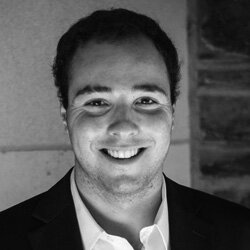A Tale of Two Visions
|
Depending on which side of the aisle you call home, this may either be the epoch of belief or the epoch of incredulity, the spring of hope or the winter of despair. These past two weeks of political conventions have painted vastly different portraits of the American landscape.
In Cleveland, the Republican National Convention trotted out a list of speakers who extolled, each in his or her own way, the many shortcomings and imperfections of our country. They tried to convert our national fear into sweeping hysteria. Our fears of terror and a collapsing economy, of the Chinese and our standing in the world. Our fears of immigrants and police shootings.
On Monday night, Rudy Giuliani warned viewers, in no uncertain terms, of the perils of the Democratic candidate’s immigration policy: “Hillary Clinton is for open borders … even though the Islamic State has told us they’re going to put their operatives in with the Syrian refugees. Operatives who are terrorists who are going to come to Western Europe and kill us!”
Also on stage that night was Sheriff David Clarke of Milwaukee, who shared his vision of social breakdown: “What we witnessed in Ferguson, in Baltimore and in Baton Rouge was a collapse of social order. So many of the actions of the Occupy movement and Black Lives Matter transcend peaceful protest, and violates the code of conduct we rely on. I call it anarchy.”
And on Thursday, Donald Trump himself laced his speech with words like “homicide,” “disaster” and “humiliation.” He told us about “savage killers,” “destruction” and “horrible and unfair trade deals.” I, like many, I’m sure, turned off my television that night feeling dejected, hopeless and afraid.
Their Garden of Eden lay in the past. Make America great again, as it once was.
The message of the Democratic National Convention stood in stark contrast. Its speakers repeatedly acknowledged the flaws of our country, but found hope and comfort in the promise of the future. President Obama called on a people who are “not constrained by what is [but] ready to seize what ought to be.” Vice President Biden told the crowd he is “more optimistic about our chances today than when [he] was elected as a 29–year-old kid to the Senate.” And Hillary Clinton declared that “progress is possible,” that we must “heal the divides in our country,” and that “we are clear-eyed about what our country is up against … but we are not afraid.”
Moreover, they sent a message that no matter if you are white or black, male or female, rich or poor, gay or straight, your ideas are welcome in the future of their party, and in the future of this country. “Vote for whoever you want to,” former President Bill Clinton said. “But if [Hillary] wins, she is coming back for you to take you along on the ride to America’s future.”
The future can be scary and uncertain. And the past can be a sure thing. Perhaps the old saying is true: better the devil you know.
But the attitude that has made America great before, and what will be our ticket on the road to the future, is an unwillingness to settle and the confidence that what we have already accomplished is only a preview of what lies ahead.
“We don’t fear the future. We shape it. We embrace it. Stronger together as one people,” said President Obama.
America cannot afford, nor can it abide, retreat to the past or regression to the known. It has to focus on what comes next, and how each one of us can take part in it.
Max Stayman, from Oakland, Calif., is a recent Duke graduate.
Want to stay informed on the go? Subscribe to our newsletter, This Week's 5 Gems. It's a curated digest of the week's top five stories delivered straight to your inbox.

Max Stayman
Max Stayman, from Oakland, Calif., is recent Duke graduate.
More Info
